Between lakes, forests, and wide open spaces – cycling in Mecklenburg-Western Pomerania
The cycle tour from the water town of Fürstenberg/Havel to the Baltic Sea crosses the idyllic Mecklenburg Kleinseenplatte. In the middle of this landscape lies the baroque town of Neustrelitz with its impressive palace gardens and historic orangery. The fascinating Müritz National Park, home to Germany’s largest inland lake – the Müritz – begins directly behind Neustrelitz. In Waren (Müritz), a magnificent view opens up over the water, which is affectionately referred to here as the “little sea”.
The journey continues along the Kölpinsee lake, through the wild and romantic Nossentiner-Schwinzer Heath and the charming little town of Krakow am See, before finally reaching the Barlach town of Güstrow. Just a few more pedal strokes and the stage is done! The exciting tour ends in the lively port of Rostock on the beautiful Baltic Sea coast, where you can enjoy the impressive backdrop of this Hanseatic city or take a trip to the popular Baltic seaside resort of Warnemünde. A wide sandy beach, the nostalgic lighthouse and a colorful harbor scene on the Alter Strom await you there.
This cycle tour combines nature experiences with cultural highlights and offers unforgettable impressions along the Mecklenburg Lake District all the way to the Baltic Sea coast.
Stage length
255 KM
Download
35 KM
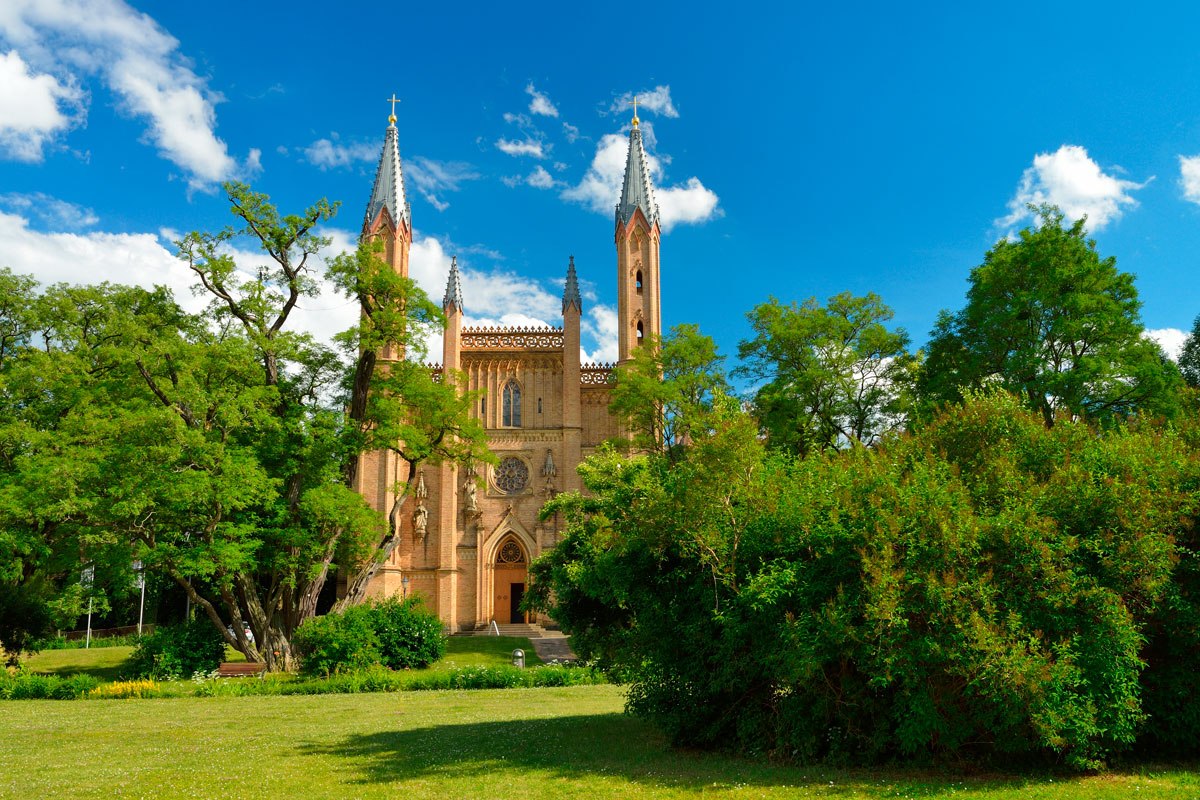
The neo-Gothic castle church in Neustrelitz, a major work by master builder Friedrich Wilhelm Buttel, hosts exhibitions of figurative sculpture by artists such as Albert Wolff in the summer. Every year, the church presents important sculptures by national and international artists, including Schadow, Rauch, Rodin, Maillol and Lehmbruck.
35 KM
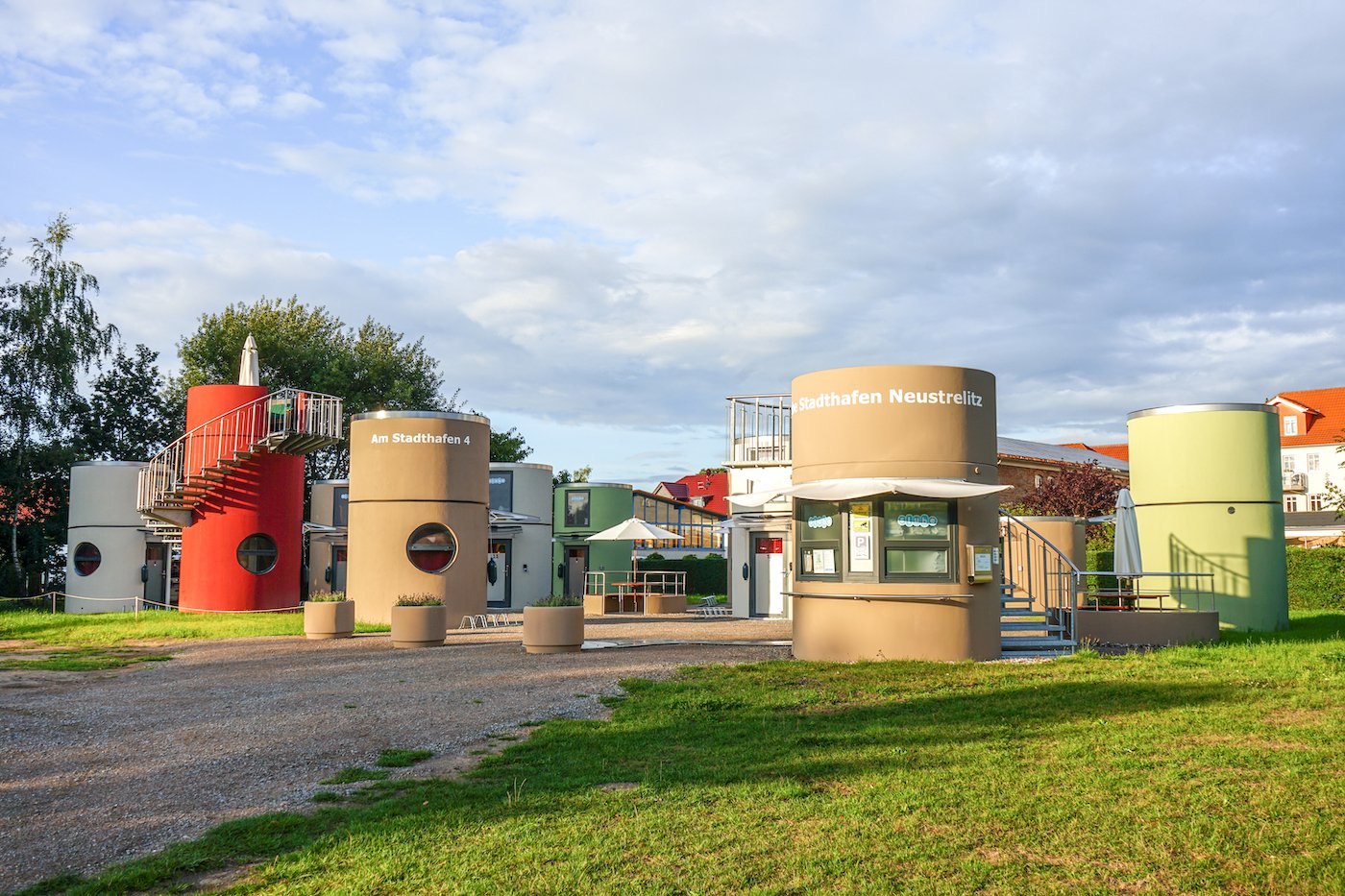
In the slubes in Neustrelitz, you can spend the night directly at the city harbor between historic brick warehouses and jetties. The unique sleeping towers offer sustainable and comfortable accommodation for guests who want to explore the Mecklenburg Kleinseenplatte. The smart control of light and temperature as well as the innovative furnishings make the stay a special experience.
74 KM
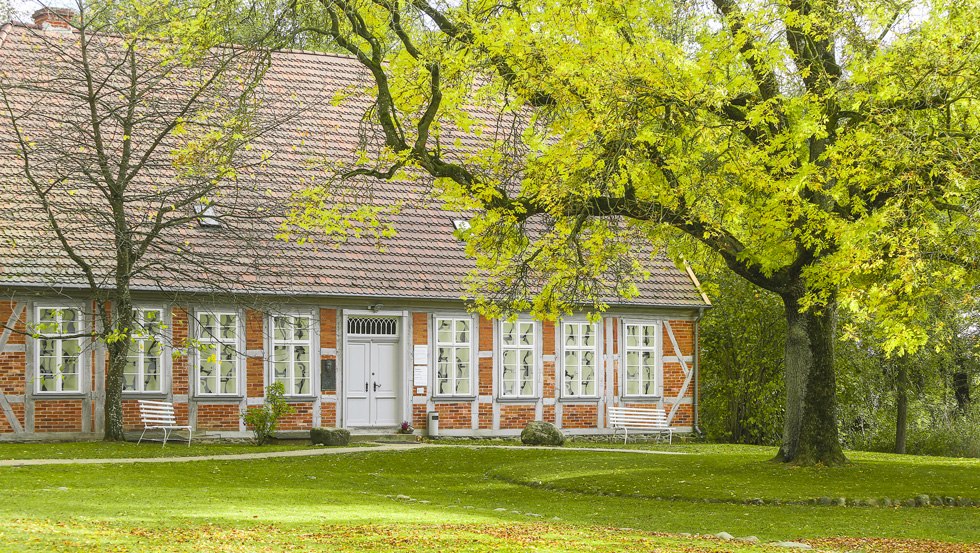
The Schliemann Museum in Ankershagen shows Heinrich Schliemann’s life with a wooden Trojan horse as an eye-catcher. Established in 1980 in the former family home, it offers insights from his childhood to his excavations. As a center of Schliemann research, it also offers a Schliemann hiking trail for visitors.
105 KM
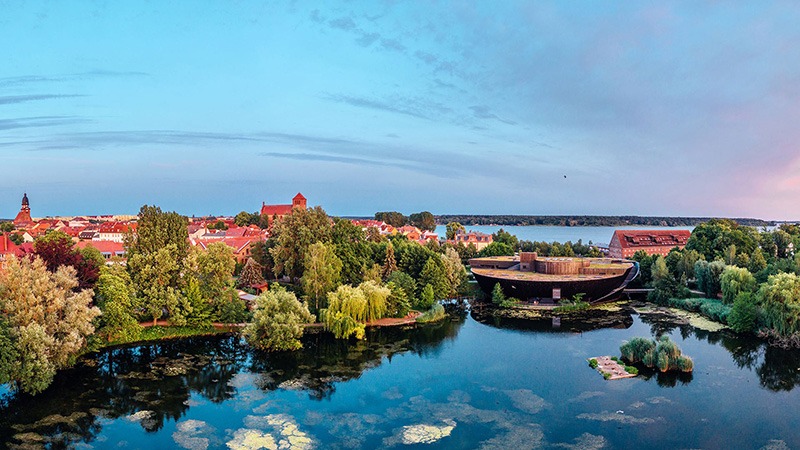
The Müritzeum shows the beauty of the lake district and the national park, with aquariums and interactive exhibitions. A deep pool and a museum garden with a playground provide entertainment. It also houses historical exhibits, such as the collection of Baron Hermann von Maltzan from 1866.
125 KM
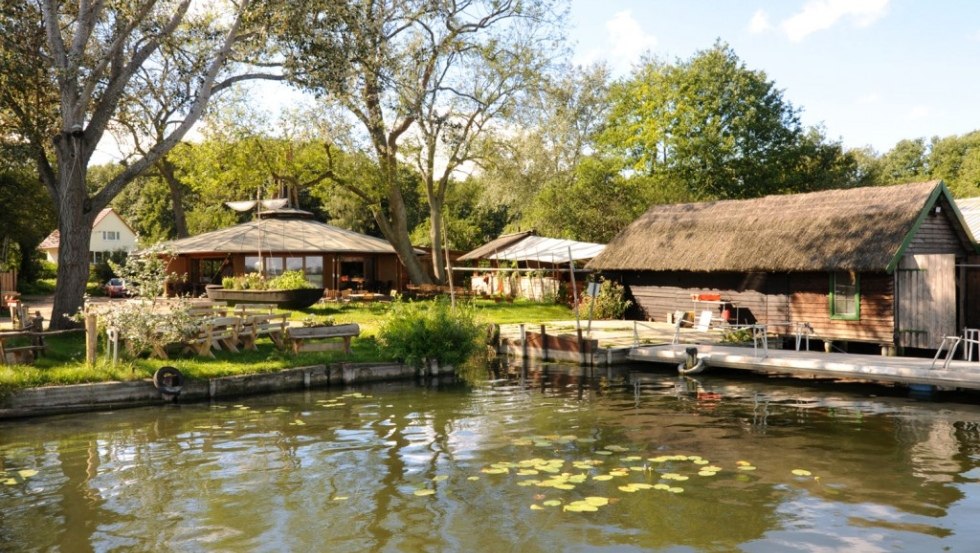
We offer freshly smoked specialties and delicious fisherman’s sandwiches directly on Lake Jabel. Enjoy pleasure and relaxation while the little guests have fun at the water play mobile. The Fischer-Rotunde with 56 seats is ideal for groups and family celebrations. Accessible by car, on foot, by bike or by passenger boat at our own jetty. Visit our fish barbecue evenings at the end of the month from May to September and try our specialties.
156 KM
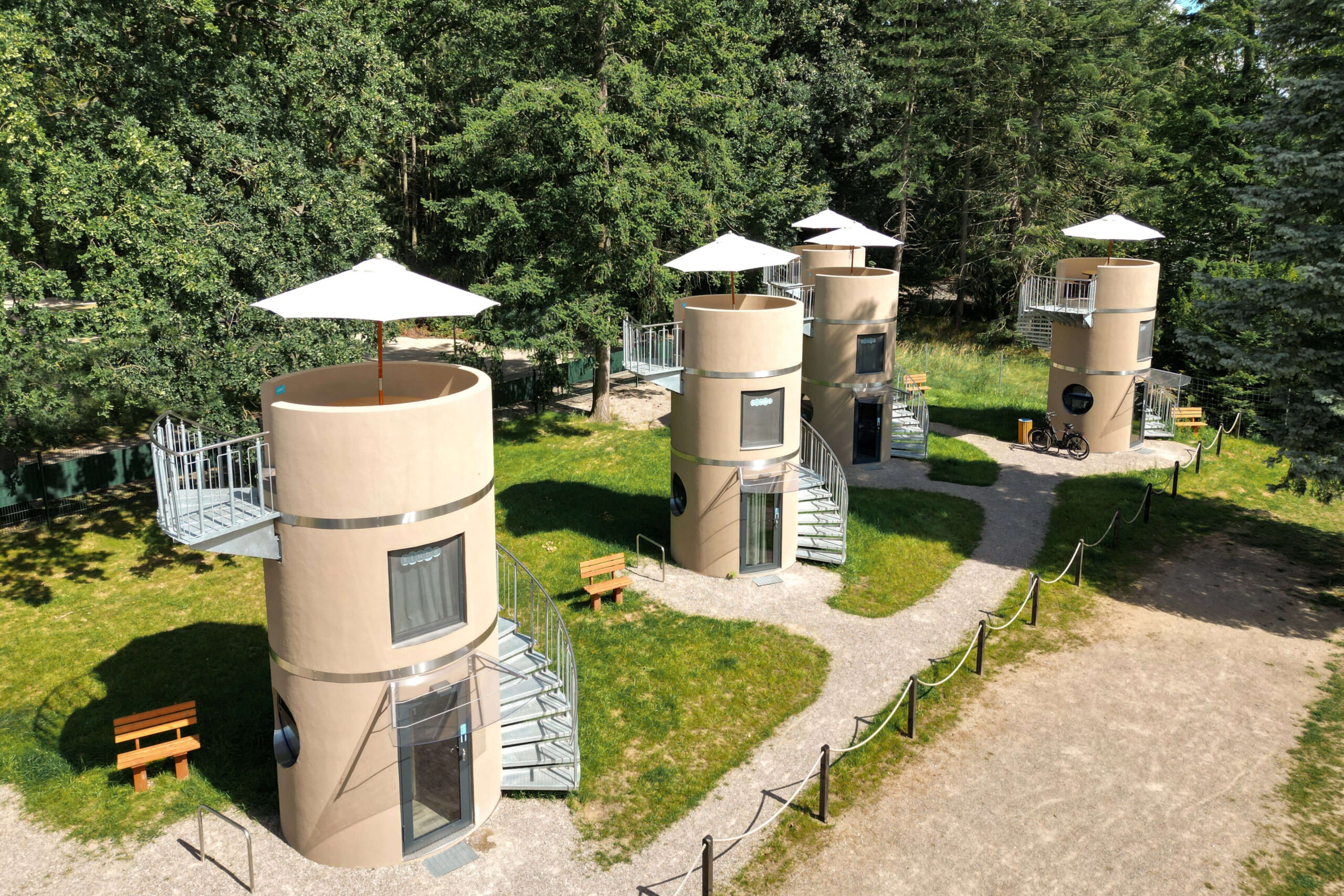
slube at the Krakower lake is the second location along the Berlin-Copenhagen cycle path and offers a compact vacation experience with five round residential towers. The modern slubes combine living room, bedroom and bathroom in a small space and offer a private roof terrace with lake view. Situated north of the Mecklenburg Lake District and just 60 km from Rostock, the slubes are a unique place to stay.
187 KM
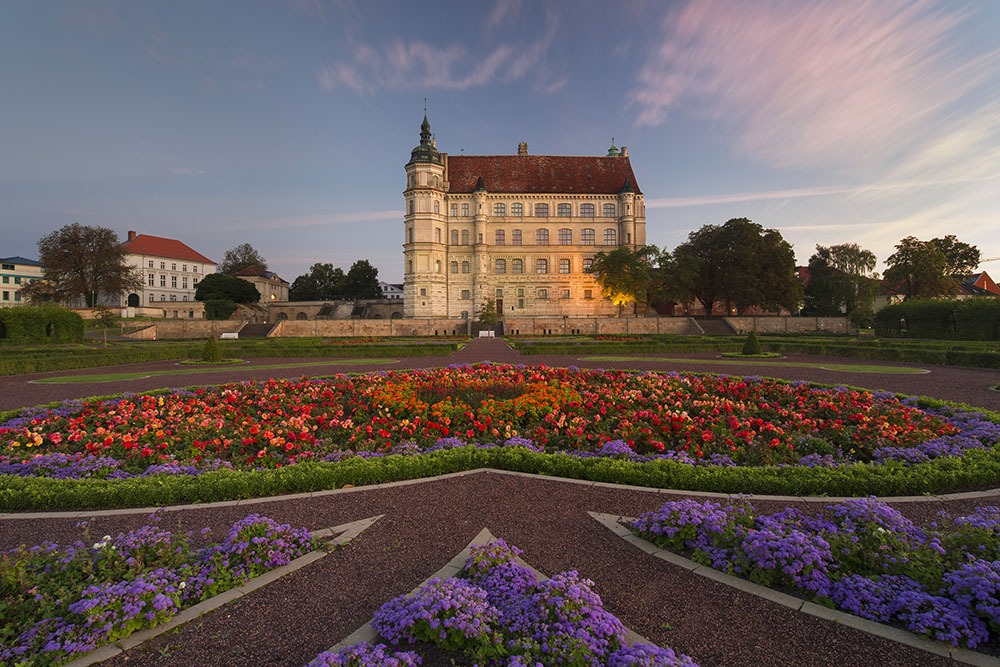
The Güstrow Renaissance palace impresses with its southern charm and magnificent stucco ceilings. Extensive renovation work is currently taking place, which means that the castle museum is closed. The historic residential town of Güstrow is home to one of the most important castles of the late Renaissance. The reconstructed pleasure garden from the 16th century invites you to take a relaxing stroll.
204 KM
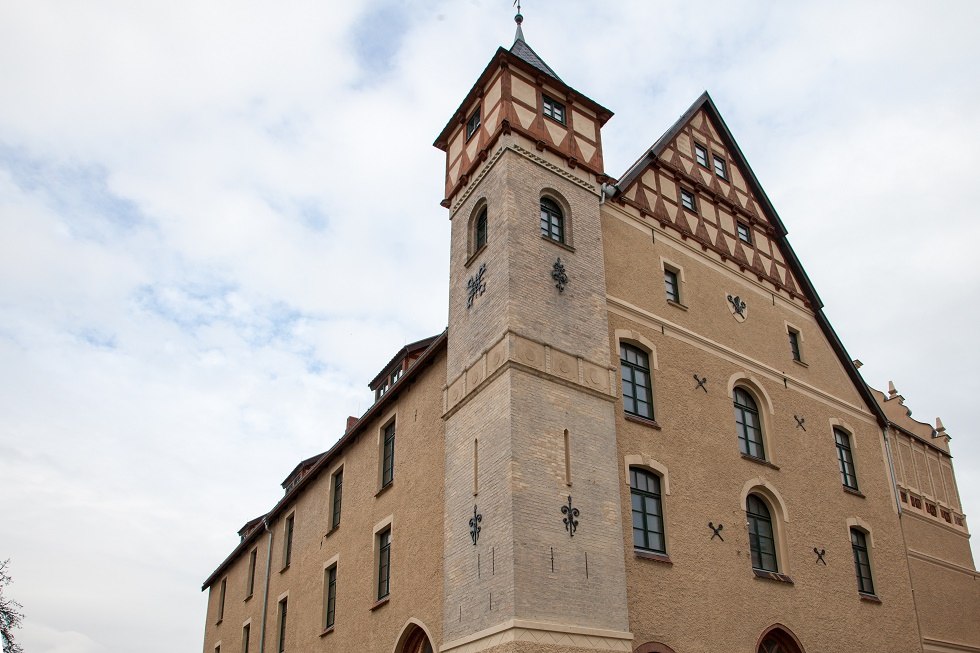
Bützow Castle was a bishop’s seat, built in 1239 by the bishops of Schwerin. Under Duke Ulrich, it was converted into a Renaissance castle in the 16th century. Today, the bishop’s chapel houses a local history museum. Following a conversion in 1910/1911, the castle now serves as a company headquarters with offices and apartments.
239 KM
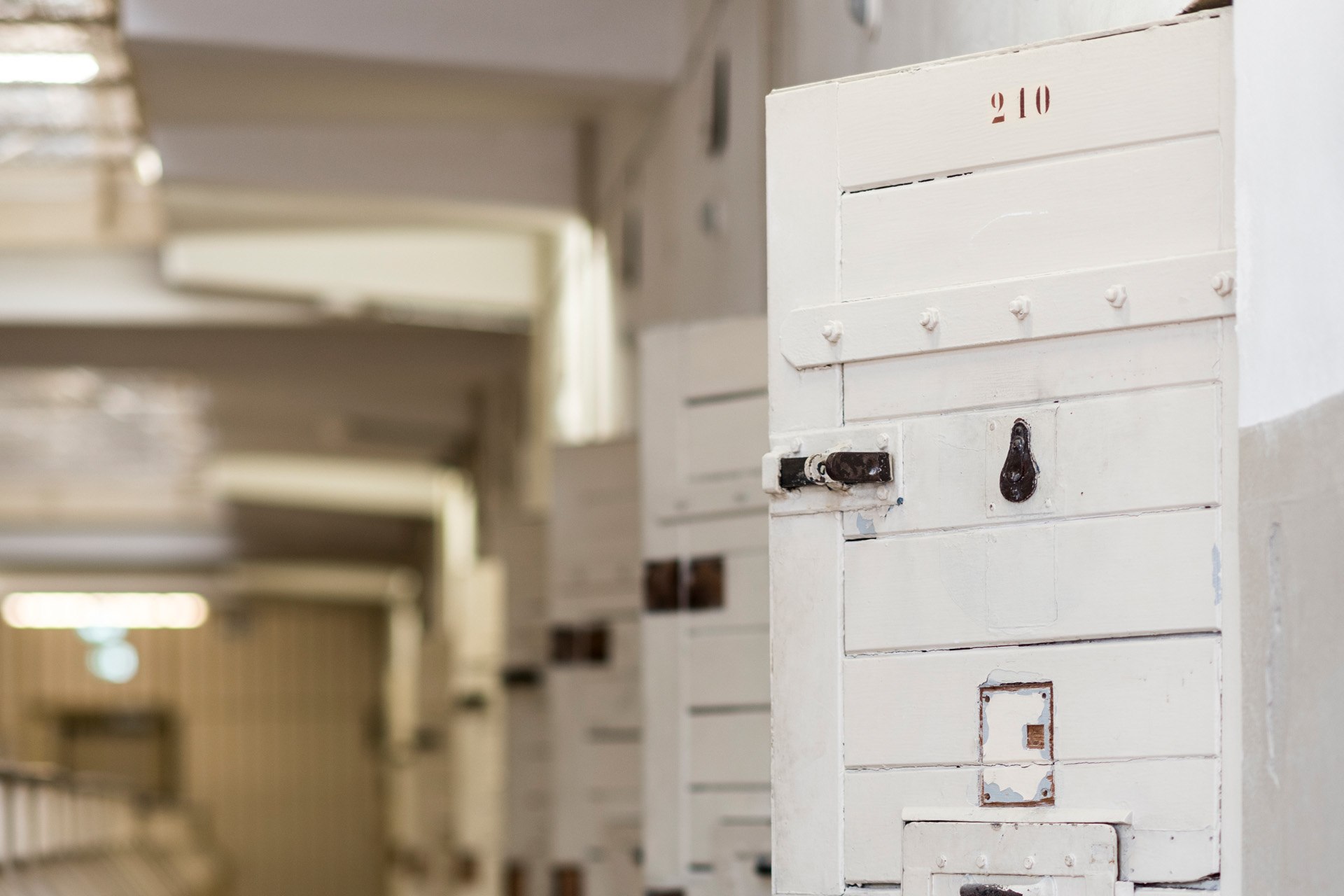
The MfS remand prison in Rostock detained around 4,900 people for political reasons between 1960 and 1989. With around 50 cells on three floors, the prisoners were isolated and interrogated. Committed people held a vigil in 1989 and peacefully occupied the prison, which now welcomes visitors as a documentation and memorial site.